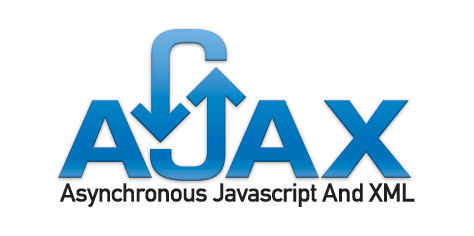
What is AJAX?
AJAX stands for Asynchronous JavaScript and XML. AJAX is a new technique for creating better, faster, and more interactive web applications with the help of XML, HTML, CSS, and Java Script.
JavaScript with AJAX you can able to make background server calls for fetching addition data, Updating some portion in a web page without refreshing the whole page.
- AJAX is based on JavaScript and HTTP requests.
- In a traditional web page you can’t update small portion without reloading page. So here Ajax is help us to background server calls for fetching data and update new contain without reloading page.
- Without AJAX, traditional web page takes a longer time to finishing round trip process for getting a data form the server. So it’s time-consuming process even if small changes are in web page, entire web page reload.
Advantages and Disadvantages of Ajax
When talking about technology and its uses, we usually discuss the pros and cons of everything. Of course, like many other techniques, Ajax itself comes with many different advantages and disadvantages.
Let’s have a deeper look at these 2 sides of Ajax technology these days.
Advantages of AJAX
Reduce server traffic and increase speed
- The first and foremost advantage of Ajax is its ability to improve the performance and usability of web applications.
- To explain more detailedly, Ajax techniques allow applications to render without data, which reduces the server traffic inside requests. That being said, web developers can lower the time consumption on both side’s responses significantly.
- As a result, your web’s visitors will never have to see a white window and wait for pages to refresh with Ajax implementation.
Enable asynchronous calls
- Ajax benefits web developers in how its framework can be used for lazy loading. Those who don’t know what Lazy Loading is are an optimization technique that’s widely used for online content.
- In essence, Ajax allows its users to make asynchronous calls to the web server without reloading the whole web page. As a web visitor, you don’t have to wait for the entire page to load entirely in order to access the entire page content.
- The concept of lazy loading assists in loading only the required section and delays the remaining, until it is needed by users. Thus, Ajax Lazy Loading not only improves a web page load it also has a positive impact on user experience and conversion rates.
XMLHttpRequest
- XMLHttpRequest is a request type widely used for sending a request to Ajax pages. You can also call it with a different name: Asynchronous HTTP request. It plays a vital role in the implementation of Ajax techniques for web development.
- XMLHttpRequest transfers and manipulates the XML data to and from a web service using HTTP. Its purpose is to establish an independent connection between the webpage’s client-side and server.
Reduce bandwidth usage
- One more advantage of Ajax comes from the bandwidth usage. This action is effective in improving web performance and load speed as well.
- Ajax makes the best use of the server’s bandwidth by fetching particle contents instead of transmitting the entire page’s content. This means that you can bring data from the database and store it into the database to perform background without reloading the page.
Form Validation
- In contrast to traditional form submission, where client-side validations occur after submission, the AJAX method enables precise and immediate form validation. AJAX provides speed, which is also one of its significant benefits.
Disadvantages of Ajax
We’ve just listed out all the areas where Ajax can show its great potential in implementation. Let’s move on to some possible drawbacks you can meet when using Ajax.
- Open-source. View source is allowed, and anyone can view the code source written for Ajax, which makes it less secure compared to other technologies.
- Search Engines cannot index Ajax pages can not be indexed by Google as well as other search engines.
- The usage of Ajax can cause difficulties for your web pages to debug as well as make them prone to possible security issues in the future.
- Most importantly, Ajax has a considerable dependency on JavaScript, so only browsers that support Javascripts or XMLHttpRequest can use pages with Ajax techniques.
- Users will find it challenging to bookmark a specific state of the application due to the dynamic web page.
- From the users’ perspective, when you click the back button on the browser, you may not return to the previous state of the page but the entire page. This happens because the pages with successive Ajax requests are unable to register with the browser’s history.
I’m a DevOps/SRE/DevSecOps/Cloud Expert passionate about sharing knowledge and experiences. I am working at Cotocus. I blog tech insights at DevOps School, travel stories at Holiday Landmark, stock market tips at Stocks Mantra, health and fitness guidance at My Medic Plus, product reviews at I reviewed , and SEO strategies at Wizbrand.
Please find my social handles as below;
Rajesh Kumar Personal Website
Rajesh Kumar at YOUTUBE
Rajesh Kumar at INSTAGRAM
Rajesh Kumar at X
Rajesh Kumar at FACEBOOK
Rajesh Kumar at LINKEDIN
Rajesh Kumar at PINTEREST
Rajesh Kumar at QUORA
Rajesh Kumar at WIZBRAND

 Starting: 1st of Every Month
Starting: 1st of Every Month  +91 8409492687
+91 8409492687  Contact@DevOpsSchool.com
Contact@DevOpsSchool.com
